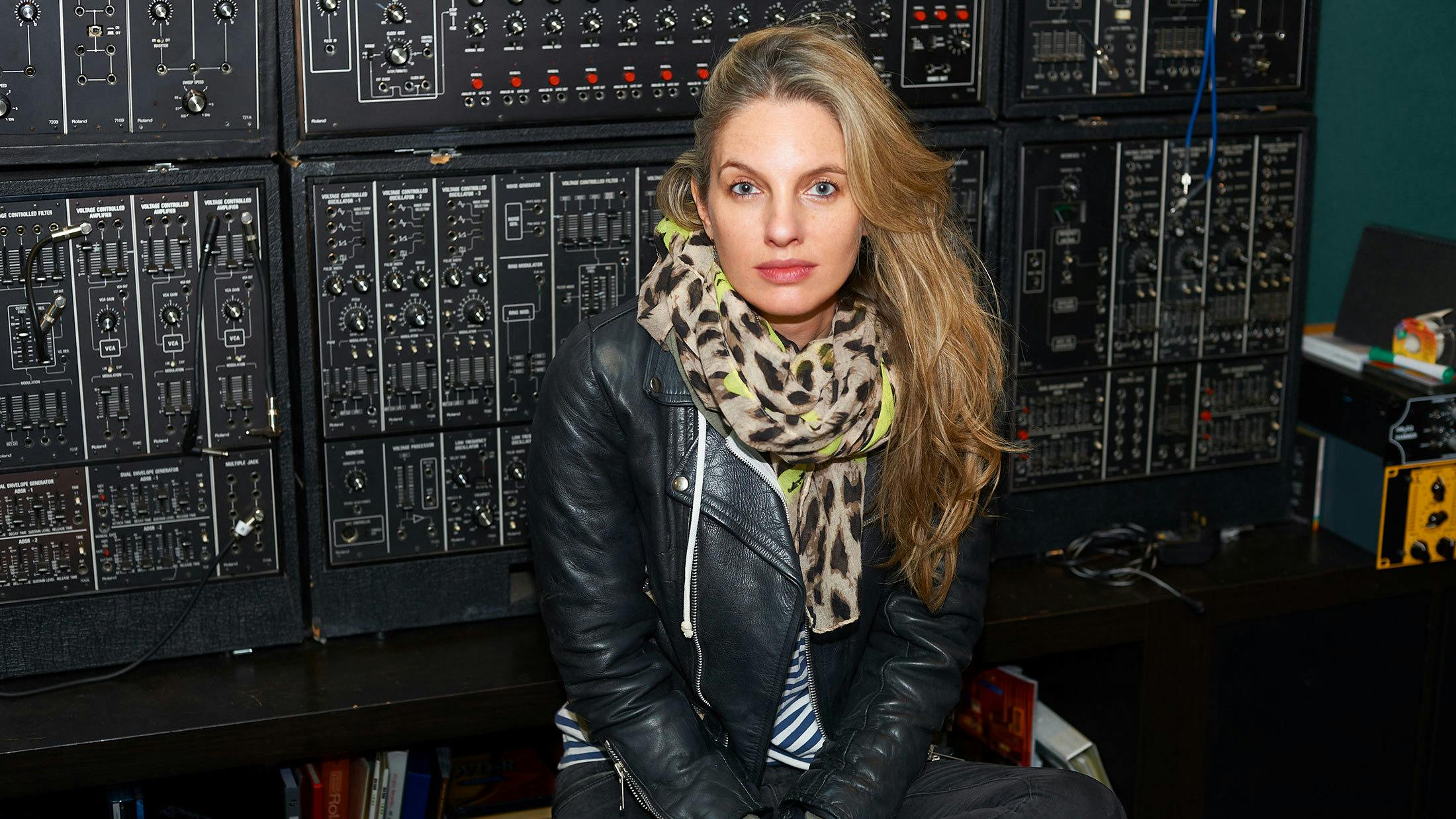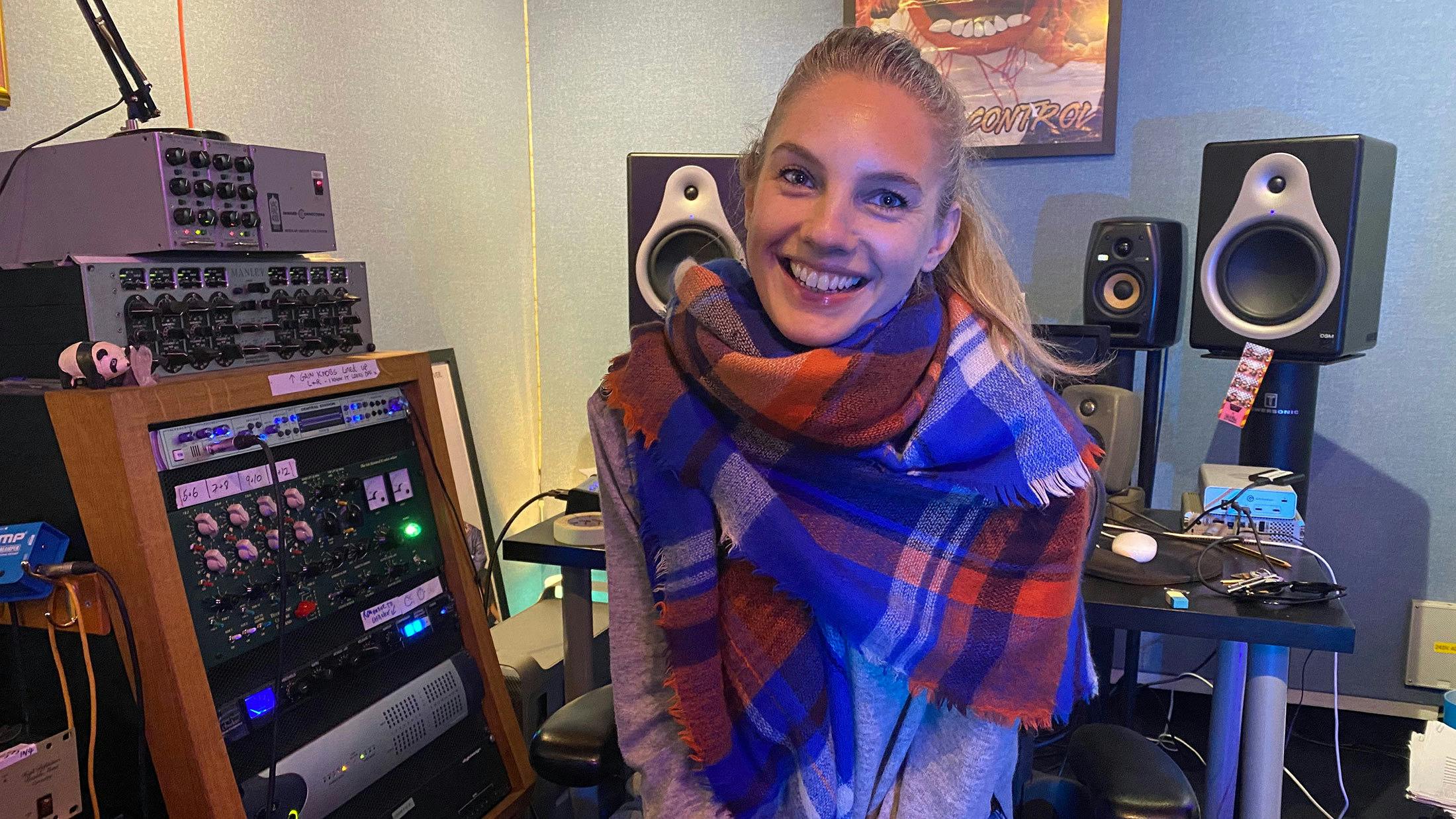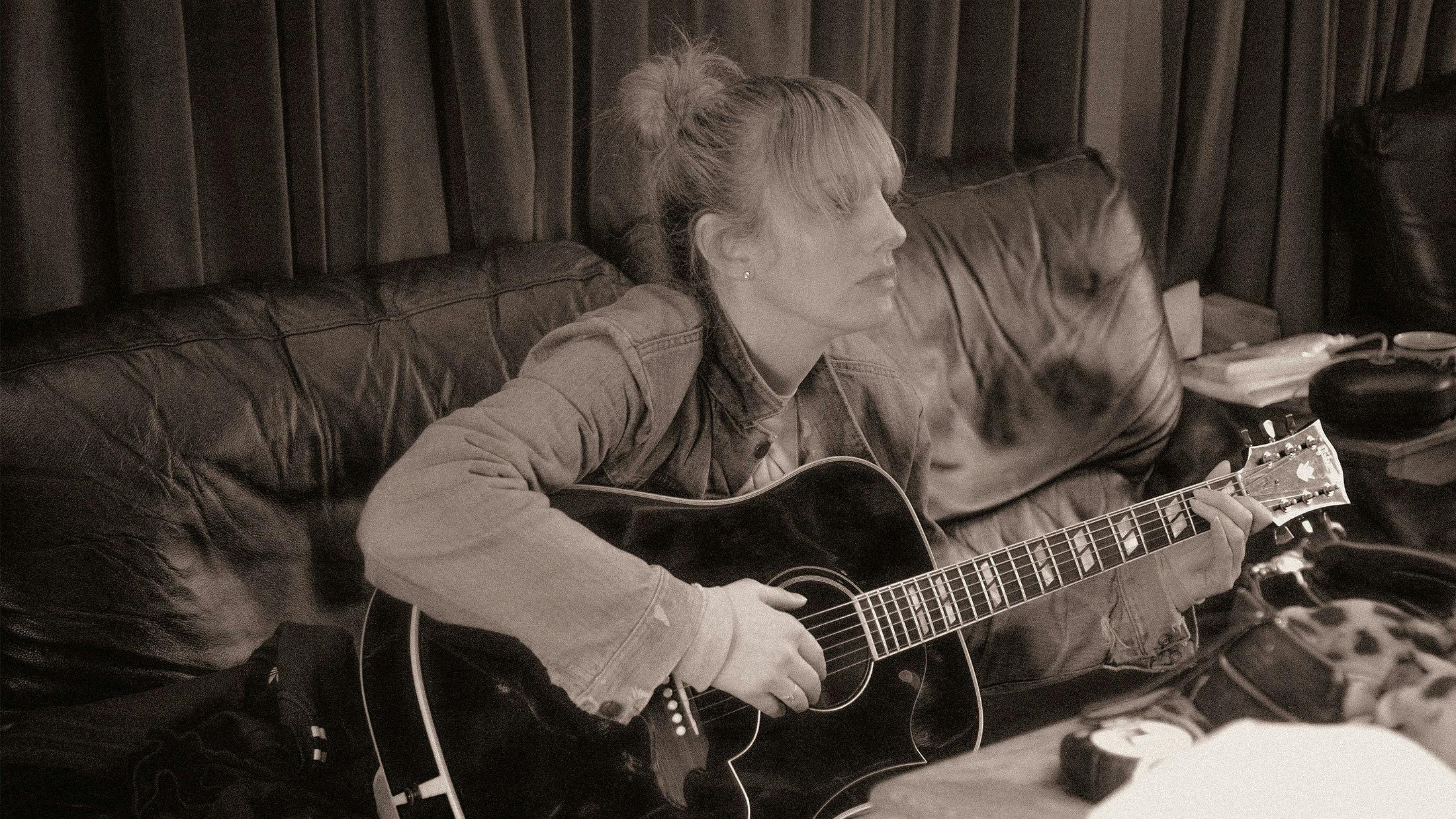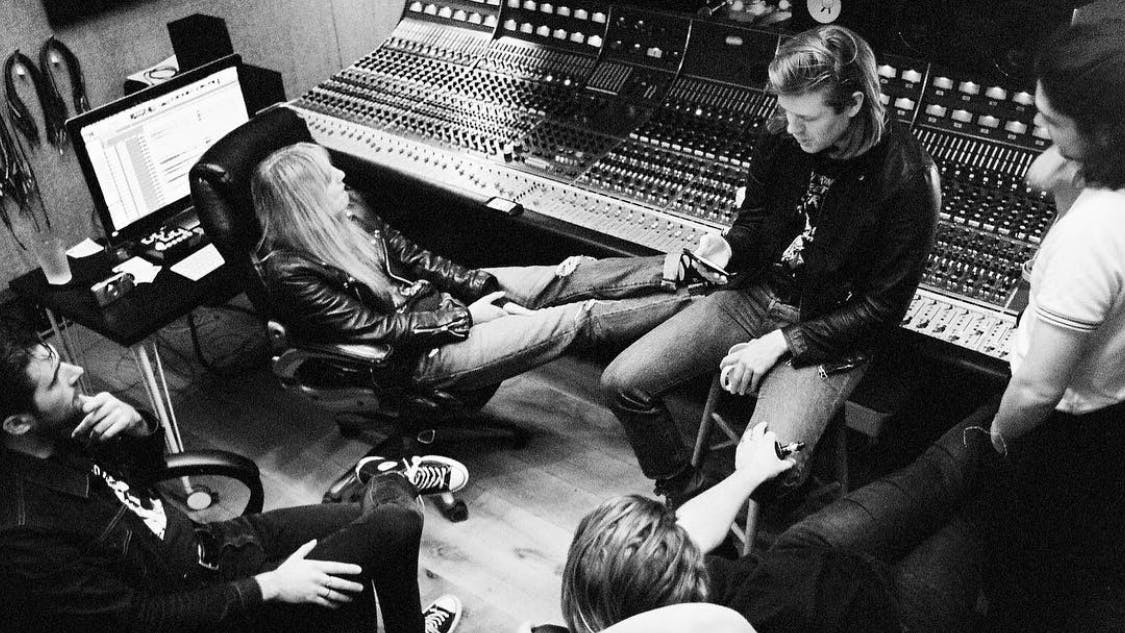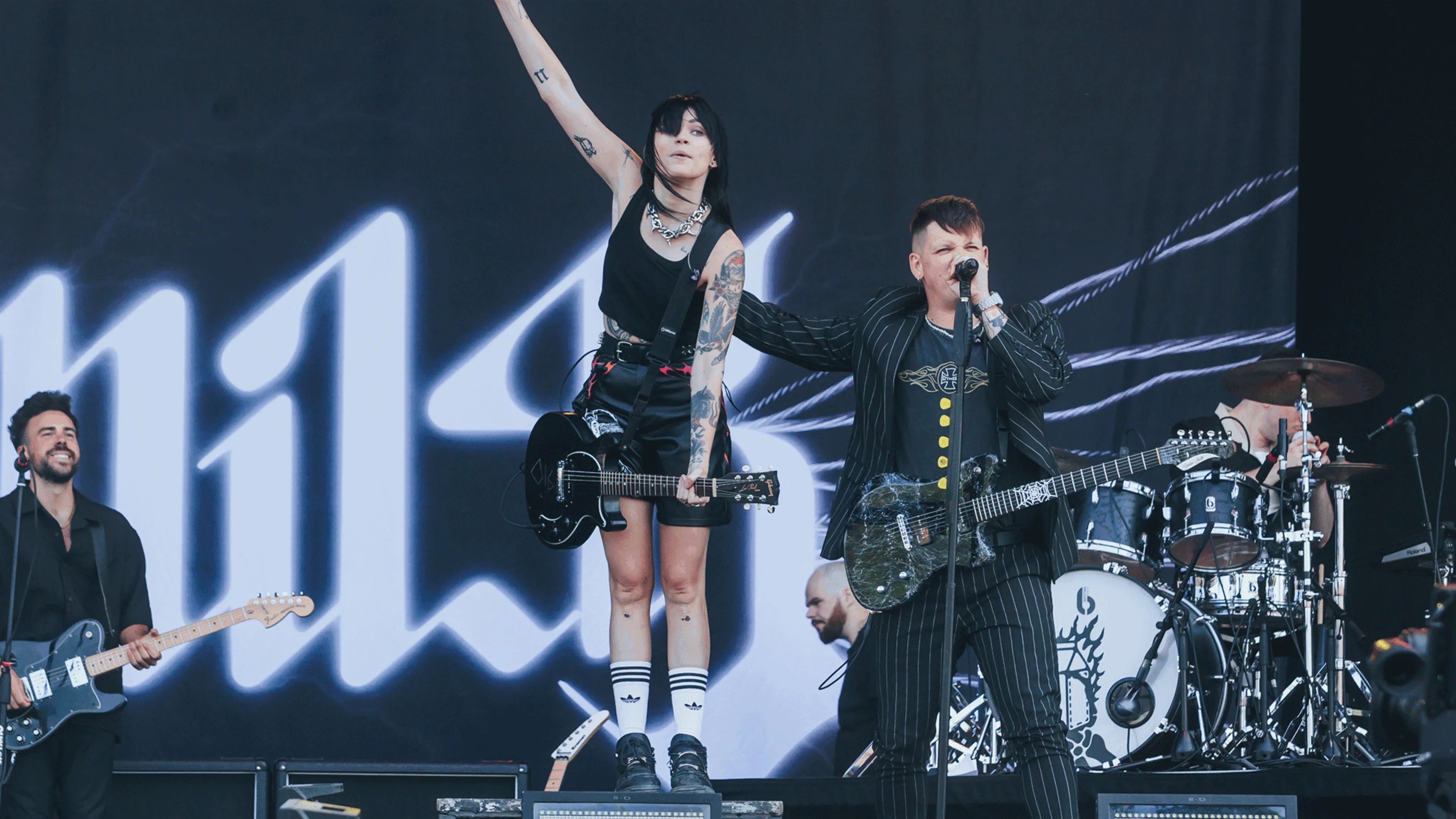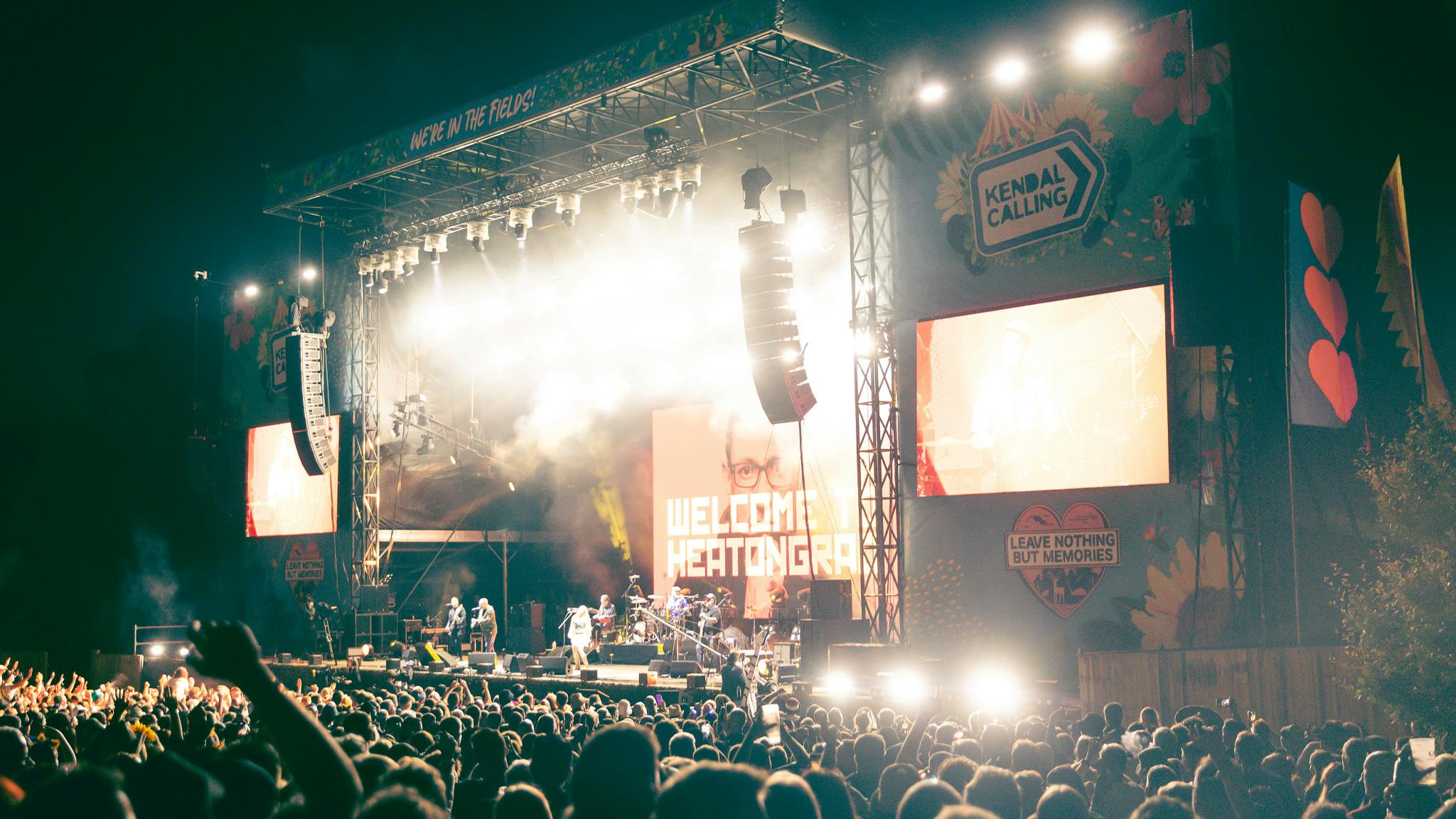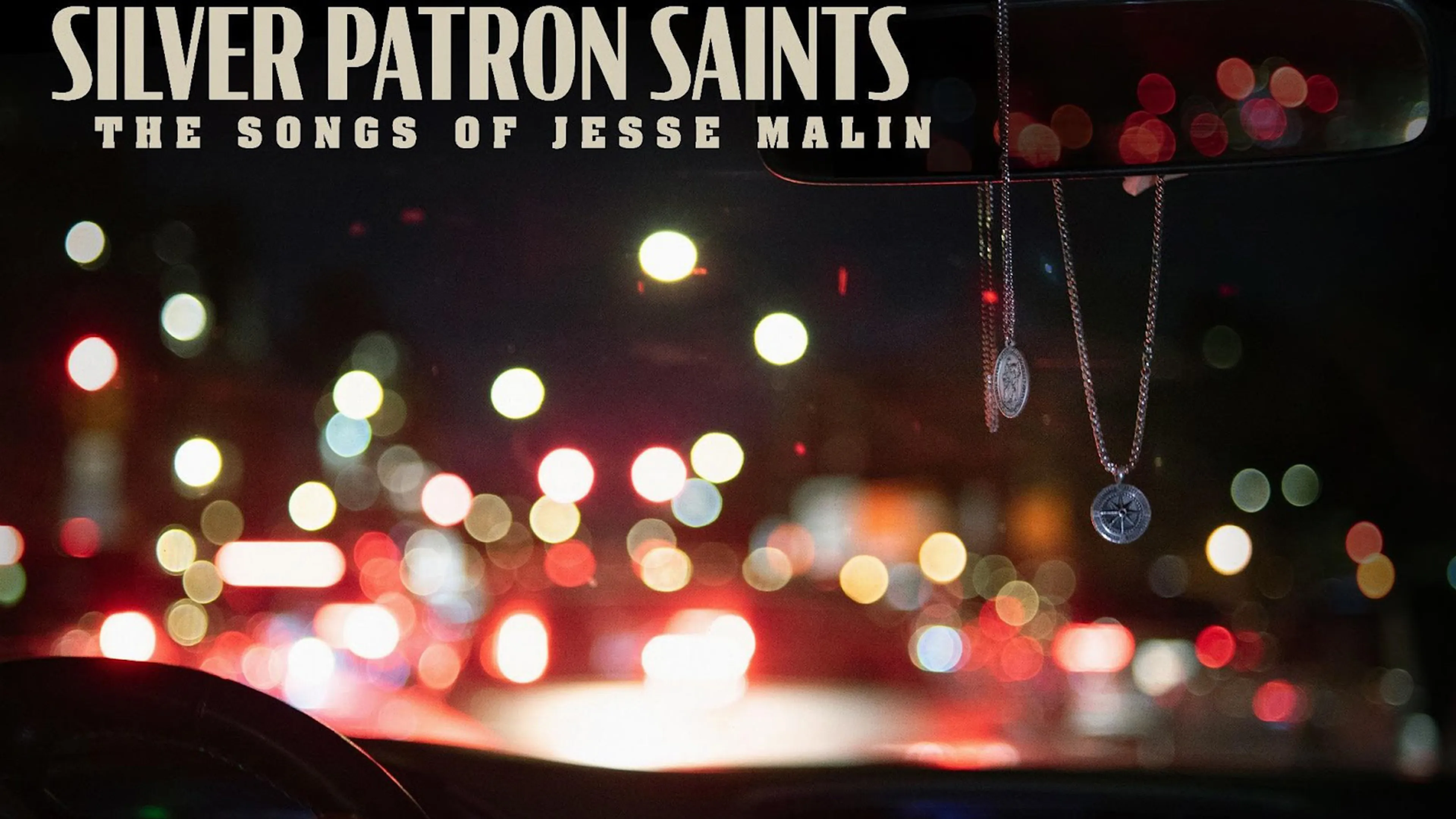Obviously you’ve had two major mentors in your career with Flood and Alan. What have you learnt from them?
“Flood and Alan Moulder are both very different but equally wonderful, and very supportive of me. The one thing that they both made sure of was that I was always myself. They said, ‘There are so many different types of producer so make sure you are who you are and don’t try and change that.'
“It was very easy working with other engineers and producers to try and copy their style or their approach or their dynamics, but they told me to be myself. Obviously in the early stages ‘myself’ was very hidden. Starting out as an assistant, it’s not about you. You almost have to be invisible, but learning how to get people to trust you is key.
“They instilled a lot of confidence in me. They got cross with me a lot, but I never made the same mistake twice. I’m so fortunate that they were so encouraging and not only taught me technically how to do things, but also how to be in the studio, really. How to manage situations and how to adapt and be resourceful, and what to do when all the gear breaks down and how to stop people panicking!”
You’ve worked with some genuinely pioneering and strong women, too: PJ Harvey, St. Vincent, Alanis Morissette and Ellie Rowsell from Wolf Alice. What unique qualities do they bring to what they do?
“That’s a good question. I first worked with Ellie from Wolf Alice on an early EP [Creature Songs in 2014]. We were hyper-aware of the fact that women in music – or the lack of women in music – had become an issue in the press and we were getting asked a lot of questions about that. It was not something we had thought about. We were both very driven, determined and at the start of our careers. The fact that we were women was not going to stop us and we were not aware that we were some kind of rarity. As we thought about it more and more, we discussed it, and we realised that we did have to do a bit more to prove ourselves, but we both agreed that being women was not going to be something that was going to get in our way.
“When I worked with PJ Harvey, that was different. When I first worked with PJ Harvey, I was more in awe of her at the end of the project than I was at the start. I had known her work before I worked with her and I was a big fan. Watching her in the studio and seeing how clear she is with her ideas, how free she is with her expression, I found that so inspiring. Her strength and her vulnerability were two things I really took away from my experience of working with her. It’s something that I’ve carried with me. Having strength and vulnerability is a real asset in the studio."
That’s maybe because you’re trying to balance time pressure with the creative process, and you’re trying to capture something unique.
“Yes. To me, the most exciting thing about making a record is feeling that ‘thing’ that's in the room and trying to capture it. If I’m successful in capturing that then I feel as if I have made a great record, whether anyone likes it or not. If that feeling is coming through the speakers or you can capture the fact that the air in the room has heated up, or there’s that little air of tension, or complete emotional collapse – if you can capture those things in the room, that’s what matters and makes the difference.
“It’s about creating an atmosphere and capturing it. With The Big Moon record, there is a sense of joy about [it] because we made it quickly and we made the studio feel as if we were on holiday. We had [inflatable] flamingos and palm trees, and we wore Hawaiian shirts and lays to make it feel like we were on holiday. We laughed heartily during the making of that record.”
